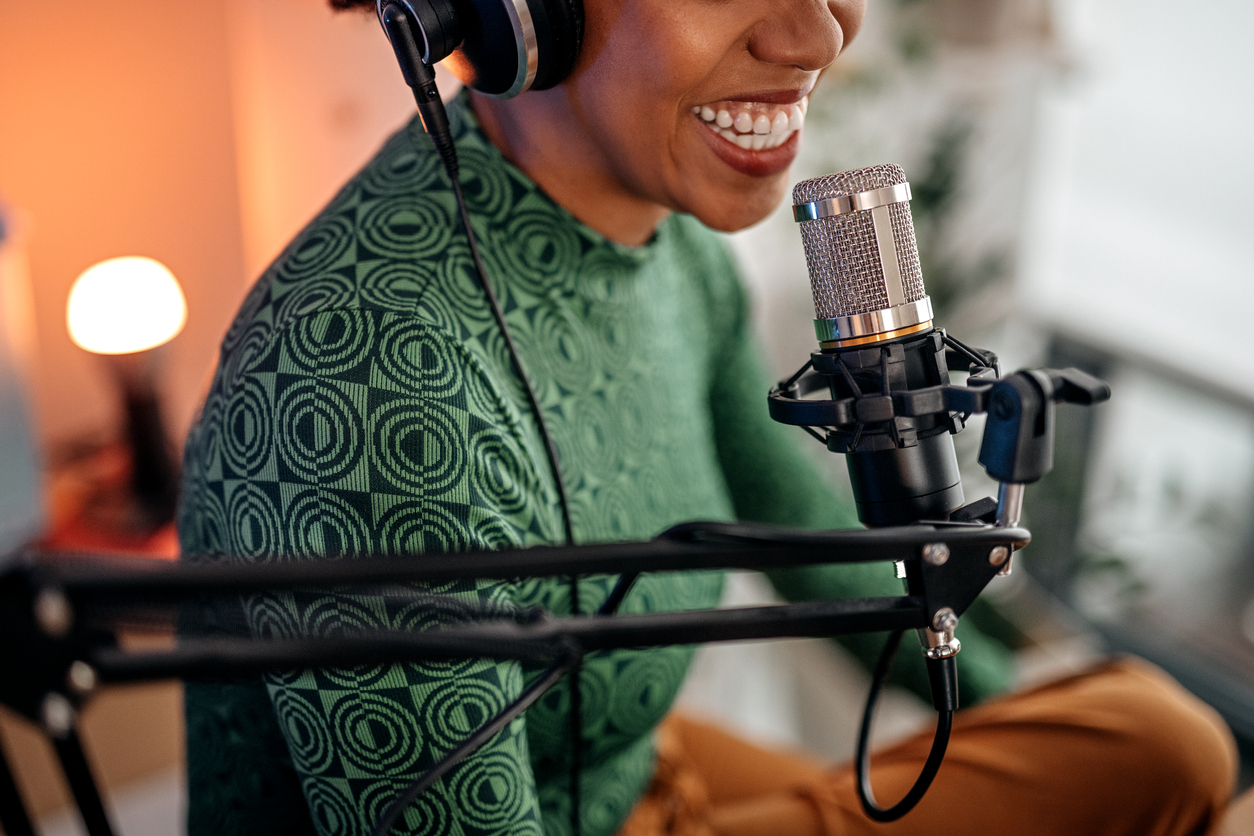As we see tech companies eager to explore new advertising avenues—especially less traditional platforms—many are curious about the ever-expanding universe of podcasts.
Podcast advertising can be a great demand gen tactic because it offers a unique blend of authenticity and storytelling that's effective at both promoting products and building meaningful connections with an audience.
If you're thinking about getting started with podcast advertising, here are the most important things to consider:
How do you identify which podcasts are best?
It's essential to approach the process authentically, meaning it's important to understanding the "why" behind each show and identify areas of common interest or values where alignment is possible.
Reaching out to your customers or co-workers to see what people are listening to is a great start, but don't forget to also research keywords on Apple Podcasts and Spotify. Check out both reviews and how long the podcast has been around. There are also tools like Rephonic where you can see additional statistics regarding views or listens.
Selecting 2-4 podcasts that align with your target audience will allow you to have variety and establish a more genuine, long-term relationship with the podcast hosts. Make sure the sponsorship a win-win by providing value to the podcast beyond monetary support, like sharing industry insights, expertise or exclusive content.
What format should podcast ads take?
Look beyond traditional 60-second ads and explore opportunities to create derivative content or offer exclusive experiences, like live demos or events tailored to the podcast's audience.
Have the show host interview a customer, read a case study or include you in their corresponding YouTube video. Ask to leverage their social channels and email databases to extend your reach and amplify your message effectively.
How much creative control should you give the podcasters?
It can be a challenge when you have a particular brand voice, but try to relinquish some creative control and allow the podcasters to infuse their unique style into your message. Giving them a script and tailored social images can muddle their unique style and sound like an ad. You want to make sure that their input is valued in order to keep their audience engaged. Ask them for their ideas and keep a feedback loop rolling. Having a good relationship with the podcaster can ensure a long-term engagement, rather than one and done.
Remember that podcasters have a unique and creative perspective that can help you think outside the box. Maybe their goofy style of social posts that includes memes will resonate with your audience more than you think!
How much should we spend?
If the podcast doesn't already have a rate sheet, use these factors to determine a fair price:- Cost Per Mille (CPM or cost per thousand listens)
- Estimate the reach
- Compare a typical spend for a webinar or conference
- How often will other ads/messages appear alongside ours?
- Length of ad/message
- Frequency delivered
- How long will the ad/message will be available?
- Any extras?
- Level of influence (based on segment, # of followers, engagement, audience breakdown, etc.)
Make sure you discuss the payment structure—whether it's a monthly fee, per episode or another arrangement—to avoid financial disputes.
What legal issues we should consider?
The biggest consideration is to make sure you clarify the ownership of content and intellectual property rights. Determine whether the podcast host retains control over the content, or if you can edit or remove your ads if necessary. For example:
- If the host makes an incorrect statement about your company, product, or service: being able to either correct the mistake or remove the ad.
- If the host becomes embroiled in controversy or facing criminal charges: having a clearly outlined process to protect your brand's reputation and legal standing.
Be explicit about who is responsible for providing the ad content, whether it's your company or the podcast production team.
It's also wise to consider who else is sponsoring the podcast, as you may want to avoid having your ads appear alongside competitors or conflicting brands.
Additionally, inquire if the podcaster monetizes their content through other means, as this may impact your sponsorship agreement.
What metrics should we use to measure success?
As always, it depends! Are your demand gen goals focused around increasing social engagement? Driving people to a section of your website? Pure brand awareness?
Here's an example of the positive metrics that Veeva, a cloud-based software for the global life sciences industry, saw in the first six months after launching their podcast advertising efforts:
- 1,000+ product demo views on LinkedIn and YouTube
- a 225% increase in traffic from social media
- 35 new customers





